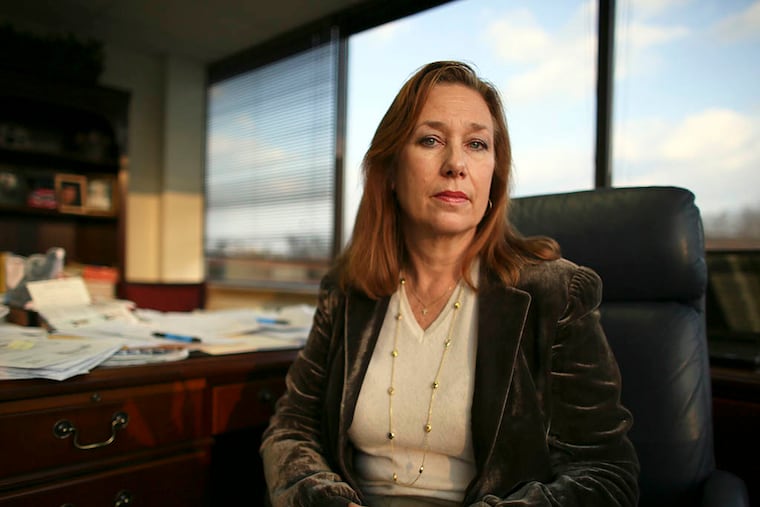Judge sticks to $1 million sanction of lawyer
Philadelphia Common Pleas Court Judge Paul Panepinto on Monday rejected a request that he reverse his nearly $1 million sanction order against insurance defense lawyer Nancy Raynor, saying new evidence Raynor cited in a hearing in March was not credible.

Philadelphia Common Pleas Court Judge Paul Panepinto on Monday rejected a request that he reverse his nearly $1 million sanction order against insurance defense lawyer Nancy Raynor, saying new evidence Raynor cited in a hearing in March was not credible.
Panepinto had harsh words for a witness who came forward in February to back up Raynor's claim that she had done nothing wrong. And he repeatedly referred to Raynor's explanation as an "alibi," a term normally employed in criminal cases.
The decision returns the matter to Superior Court, a midlevel appellate panel that ordered Panepinto to reopen the case in February.
Panepinto imposed the financial sanctions on Raynor in November after one of her witnesses testified that a woman at the heart of a medical malpractice trial was a smoker. Panepinto had banned mention of the woman's smoking history at the start of the trial at the request of plaintiffs' lawyers.
The sanctions have caused widespread concern among lawyers in Philadelphia, who worry that they, too, may now be held financially accountable for the mistakes of witnesses.
At the hearing in March, trial technician Joseph Chapman testified that he overheard Raynor advise emergency room physician John Kelly that there could be no mention of the woman's smoking, backing up Raynor's claim that she told witnesses about the precluded testimony. His testimony paralleled those of two other witnesses who had said they heard Raynor giving the same instructions to Kelly. Kelly said that he could not recall much of what Raynor told him and that he had destroyed his notes of their conversations.
Panepinto concluded Monday that Chapman's testimony was "incredible," and accused Raynor of deliberately eliciting the banned testimony. "Raynor's conduct was orchestrated to improperly influence the outcome of the trial," Panepinto said.
The sanctions case emerged from a medical malpractice trial before Panepinto in 2012. The estate of Rosalind Wilson, who died of lung cancer, sued Roxborough Memorial Hospital and doctors, alleging mistakes in her care.
Wilson had gone to the hospital emergency room in 2007 complaining of chest pains and shortness of breath. Although an X-ray revealed she had a potentially cancerous nodule on her lung, doctors did not notify her of it and she died two years later.
Raynor has centered her defense against the sanctions order on the testimony of three witnesses: an insurance company claims examiner, a physician, and Chapman, who all say they heard Raynor advise Kelly that smoking testimony was off limits.
But in his opinion, Panepinto dismissed those accounts. He said statements of the physician, the claims examiner, and Raynor differed dramatically from that offered by Chapman. The physician and the claims examiner said they saw Raynor advising Kelly in the hallway outside the courtroom, and that they had participated in the conversation - Chapman says he only saw Raynor and Kelly conferring. Panepinto said their accounts also lacked credibility because no one came forward for the 2012 trial.
"This court has a number of serious concerns about Chapman's memory, and overall capacity for telling the truth," Panepinto said.
Raynor's lawyer, Jeff McCarron, said the judge's words were "uncalled for."
"It was not reflected at all in his testimony, which was consistent with other evidence. Cross-examination did not undermine it," McCarron said.
Raynor appealed the $946,147 sanctions order to Superior Court this year. In February, the appellate panel ordered Panepinto to reconsider his penalty after Chapman came forward with a sworn statement. The panel said then that Chapman's testimony could reverse the sanctions.